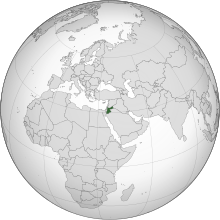
Lesbian, gay, bisexual, and transgender (LGBT) people in Gabon face legal challenges not experienced by non-LGBTQ residents. Except for a period between July 2019 and June 2020, same-sex sexual activity has generally been legal in Gabon.
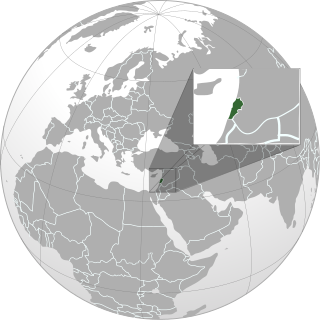
Lesbian, gay, bisexual, and transgender (LGBT) people living in Lebanon face discrimination and legal difficulties not experienced by non-LGBT residents. Various courts have ruled that Article 534 of the Lebanese Penal Code, which prohibits having sexual relations that "contradict the laws of nature", should not be used to arrest LGBT people. Nonetheless, the law is still being used to harass and persecute LGBT people through occasional police arrests, in which detainees are sometimes subject to intrusive physical examinations.

Lesbian, gay, bisexual and transgender (LGBT) people in the United Arab Emirates face discrimination and legal challenges. Homosexuality is illegal in the United Arab Emirates (UAE) and under the federal criminal provisions, consensual same-sex sexual activity is punishable by imprisonment; extra-marital sexual activity between persons of different sexes is also illegal. In both cases, prosecution will only be brought if a husband or male guardian of one of the participants makes a criminal complaint. The penalty is a minimum of six months imprisonment; no maximum penalty is prescribed, and the court has full discretion to impose any sentence in accordance with the country's constitution.

Lesbian, gay, bisexual, and transgender (LGBT) people in Tunisia face legal challenges not experienced by non-LGBT residents. Both male and female kinds of same-sex sexual activity are illegal in the country. According to the United States Department of State's 2018 report on human rights in Tunisia, "authorities occasionally use [the anti-sodomy law] to detain and question persons about their sexual activities and orientation, reportedly at times based on appearance alone."
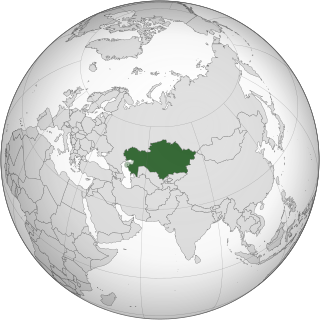
Lesbian, gay, bisexual, and transgender (LGBT) people in Kazakhstan face significant challenges not experienced by non-LGBTQ residents. Both male and female kinds of same-sex sexual activity are legal in Kazakhstan, but same-sex couples and households headed by same-sex couples are not eligible for the same legal protections available to opposite-sex married couples.

Lesbian, gay, bisexual, and transgender (LGBT) rights in Angola have seen improvements in the early 21st century. In November 2020, the National Assembly approved a new penal code, which legalised consenting same-sex sexual activity. Additionally, employment discrimination on the basis of sexual orientation has been banned, making Angola one of the few African countries to have such protections for LGBTQ people.

Lesbian, gay, bisexual, and transgender (LGBT) people in Kuwait face significant challenges not experienced by non-LGBTQ residents. Same-sex sexual activity between men is specifically outlawed and LGBT individuals may also be targeted under the public morality laws. LGBT persons are regularly prosecuted by the government and additionally face discrimination and stigmatization by officials and amongst the broader population.
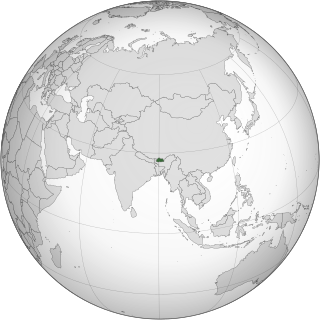
Lesbian, gay, bisexual and transgender (LGBT) people in Bhutan face legal challenges that are not faced by non-LGBTQ people. Bhutan does not provide any anti-discrimination laws for LGBT people, and same-sex unions are not recognised. However, same-sex sexual activity was decriminalised in Bhutan on 17 February 2021.

Lesbian, gay, bisexual, and transgender (LGBT) people in Brunei face severe challenges not experienced by non-LGBTQ residents. Both male and female expressions of homosexuality are illegal in Brunei. Sexual activity between men is de jure liable to capital punishment, with de facto lesser penalties of imprisonment and whipping applied; sex between women is punishable by caning or imprisonment. The sultanate applied a moratorium on the death penalty in 2019, which was still in effect as of May 2023. The moratorium could be revoked at any time.

Lesbian, gay, bisexual, and transgender (LGBT) people are generally discriminated against in Libya. Homosexual activity is criminalised for both men and women within Libya, and homophobic attitudes are prevalent throughout the country. Since the fall of the Gaddafi regime in 2011, the discriminatory laws regarding homosexuality in Libya remain unchanged.

Lesbian, gay, bisexual, and transgender (LGBT) people in Malawi face legal challenges not experienced by non-LGBTQ residents. Both male and female expressions of same-sex sexual activity are illegal within the nation. The Penal Code prohibits "carnal knowledge against the order of nature", attempts to commit "carnal knowledge against the order of nature", and acts of "gross indecency". Homosexuality among men is punishable by up to 14 years in prison in the country, while homosexuality among women is also punishable by up to five years in prison. There are no protections for LGBT rights in the country.

Lesbian, gay, bisexual, and transgender (LGBT) people in the Dominican Republic do not possess the same legal protections as non-LGBTQ residents, and face social challenges that are not experienced by other people. While the Dominican Criminal Code does not expressly prohibit same-sex sexual relations or cross-dressing, it also does not address discrimination or harassment on the account of sexual orientation or gender identity, nor does it recognize same-sex unions in any form, whether it be marriage or partnerships. Households headed by same-sex couples are also not eligible for any of the same rights given to opposite-sex married couples, as same-sex marriage is constitutionally banned in the country.

Homosexuality in the Palestinian territories is considered a taboo subject; lesbian, gay, bisexual, and transgender (LGBTQ) people experience persecution and violence. There is a significant legal divide between the West Bank and the Gaza Strip, with the former having more progressive laws and the latter having more conservative laws. Shortly after the Jordanian annexation of the West Bank in 1950, same-sex acts were decriminalized across the territory with the adoption of the Jordanian Penal Code of 1951. In the Egyptian-occupied Gaza Strip and under Hamas' rule, however, no such initiative was implemented.

Lesbian, gay, bisexual, and transgender (LGBT) people in Zambia face significant challenges not experienced by non-LGBTQ residents. Same-sex sexual activity is illegal for both men and women in Zambia. Formerly a colony of the British Empire, Zambia inherited the laws and legal system of its colonial occupiers upon independence in 1964. Laws concerning homosexuality have largely remained unchanged since then, and homosexuality is covered by sodomy laws that also proscribe bestiality. Social attitudes toward LGBT people are mostly negative and coloured by perceptions that homosexuality is immoral and a form of insanity. However, in recent years, younger generations are beginning to show positive and open minded attitudes towards their LGBT peers.
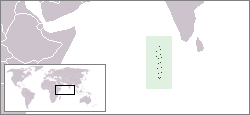
Lesbian, gay, bisexual, and transgender (LGBTQ) people are generally discriminated against in the Maldives.

Lesbian, gay, bisexual and transgender (LGBTQ) people in Liberia face legal and social challenges which others in the country do not experience. LGBT people in Liberia encounter widespread discrimination, including harassment, death threats, and at times physical attacks. Several prominent Liberian politicians and organizations have campaigned to restrict LGBT rights further, while several local, Liberian-based organizations exist to advocate and provide services for the LGBT community in Liberia. Same-sex sexual activity is criminalized regardless of the gender of those involved, with a maximum penalty of three years in prison, and same-sex marriage is illegal.
Communist attitudes towards LGBT rights have evolved radically in the 21st century. In the 19th and 20th century, communist parties and Marxist–Leninist states varied on LGBT rights; some Western and Eastern parties were among the first political parties to support LGBT rights, while others, especially the Soviet Union and some of its Eastern Bloc members, harshly persecuted people of the LGBT community.

Lesbian, gay, bisexual, and transgender (LGBT) people generally have limited or highly restrictive rights in most parts of the Middle East, and are open to hostility in others. Sex between men is illegal in 9 of the 18 countries that make up the region. It is punishable by death in four of these 18 countries. The rights and freedoms of LGBT citizens are strongly influenced by the prevailing cultural traditions and religious mores of people living in the region – particularly Islam.

Capital punishment as a criminal punishment for homosexuality has been implemented by a number of countries in their history. It is a legal punishment in several countries and regions, all of which have sharia-based criminal laws, except for Uganda.
Association Shams is a Tunisian organization for LGBT rights, campaigning for sexual minority rights in Tunisia. The non-governmental, non-profit organisation derives its name from the Sufi mystic Shams Tabrizi and its logo is made up of two whirling dervishes.
